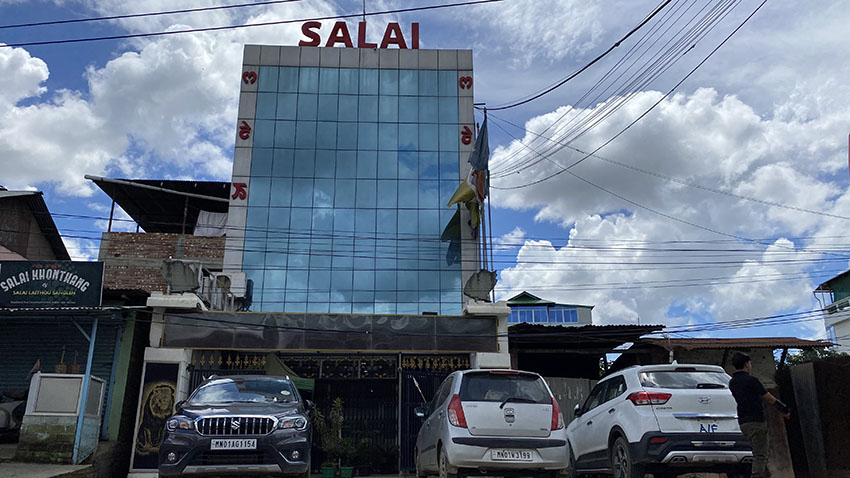Does Manipur have a legitimate financial market? But even more fundamental, does Manipur have a financial market at all? The answer probably is, there is tremendous potential for it to have a vibrant one, but so far things have not been shaping up in the right direction in this regard. They have either taken the Ponzi way, or else entities which are structured to resemble Ponzi schemes, but perhaps not entirely so in spirit. Two of the most prominent of these which have had to live through a media trial, followed by legal ones, are Salai and Lamjingba group of companies, both registered as private limited companies. While they were at their peaks, they also made themselves into holding companies and thereafter launched and invested in several undertakings. At one point, they came to be looked up upon with awe and admiration by many, attracting flocks after flocks to put their money in them. This was not so much because these investors believed the enterprises these discredited companies floated would become profitable and there would be a share of this profit for every investor. The attraction instead was immediate returns in terms of extremely liberal and unrealistic interests the investors were promised.
In structure there can be no doubt they resemble Ponzi, but despite this, it is quite likely that in intent they are not. One evidence of this is, they did not keep the money they raised from deposits in the liquid form, but converted a major part of it into immovable properties and enterprise infrastructures which the people behind the companies cannot simply carry away and disappear with. If this assumption is correct, then the crime of these companies is the adoption of wrong revenue models for their enterprises. Salai faced official scrutiny earlier, and from all appearances, this seems to be the findings of the investigations – that it was not entirely Ponzi. It is another matter that Salai founders are still being investigated for possible transfer of money to unlawful organisations, for this has nothing to do with Ponzi. To be fair to the company and their founders, let the investigation decide the nature of their guilt, not the lynch mob or self-righteous pressmen. Let it also be remembered that Salai in particular was also widely believed to be behind a new political party that was floated ahead of the 2017 election which weaned away many leaders of the then ruling Congress therefore helping usher in the BJP to the state’s seats of power. Whether this was part of a game plan or a mere coincidence is a matter of speculation only. If on the other hand these companies are to be treated as Ponzi in letter and spirit, then as much as they are guilty, it must also be added the fault is also with the get rich quick mentality of those who invested in them. This is sad, for it is also known that many, if not most, of those who did put their money in these companies are literate and affluent.
What then is the difference between a Ponzi and a public limited company which too raises public money to do their businesses. First and foremost, in the language of the financial market, what these companies offered to the investors were not equities (also referred to as stocks and also shares), but essentially bonds. The difference is, buying equities makes the investor a part-owner of the company, binding them to the profits and losses of the company in proportion to the number of shares they hold. In the case of bonds, it is like a fixed deposit in a bank whereby the depositor invests with an eye on the interest they are promised on their deposits, but in no way would they be entitled to an ownership stake in the company. As we have seen, the option of investors in these now discredited finance companies has been for the latter. Whether this is by design of the companies and investors, or puerile understanding of the financial market is again a matter of speculation. Whatever it is, it does not show these companies or the people who went ahead and trusted their money in the former’s hands, in good light.
Let all then leave the matter to be decided by the investigators. Let the balance sheets of the companies in the dock be studied minutely to see where their investments were going, and whether unwarranted amounts of money were being siphoned off into personal accounts etc. Only this can establish the truth behind the controversy these companies have landed in. But regardless of the nature of the guilt established of these companies, one thing is clear – given the correct initiative and vision, Manipur does seem capable of building a financial market. It is now known that the kind of money these companies raised were not just a matter of a few crores, but were in the tune of several hundred crores each. If honest and visionary enterprises were to begin germinating in the state, earning enough trust of the people to make them invest in terms of equity not bonds, with the patience not to thirst for quick returns, the courage to take risk, and the intuition to know which companies they invest in can grow and bring them good returns, a financial market in the state can become a reality. With a culture of innovative ways of profitably saving small and medium earnings as in popular institutions like Leikai Marup, there are reasons to be optimistic that even amidst the mess that companies like Salai and Lamjingba have landed in, given the right initiative, light at the end of the tunnel in the shape of a vibrant financial market taking birth, can come into sight.












